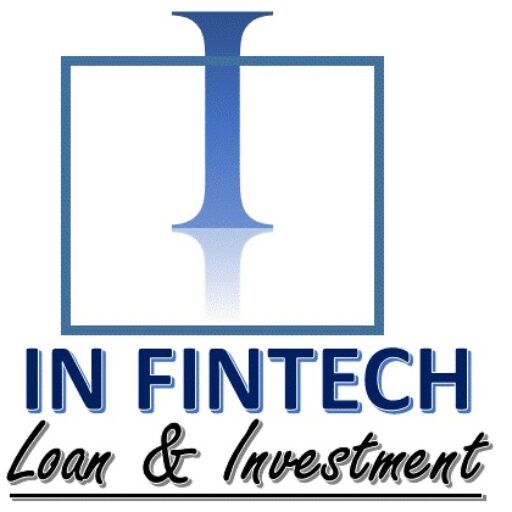Risk and Responsibility: Rent vs EMI
When it comes to finding a place to live, two of the most common options are renting and purchasing a property through a mortgage. Both choices have their own set of advantages and disadvantages, but when you look deeper, the underlying factors of risk and responsibility come into play. Renting often offers flexibility and lower risk, while homeownership with an EMI (Equated Monthly Installment) creates long-term financial commitments and responsibilities that can bring both rewards and challenges.
This article will explore the fundamental differences between renting and taking on an EMI, highlighting the risks and responsibilities associated with each. By understanding the pros and cons of both options, you can make an informed decision that aligns with your lifestyle, financial situation, and long-term goals.
Renting: Flexibility with Less Responsibility
The Risks of Renting
Renting is often viewed as the more flexible option, offering the ability to move without the burden of long-term financial commitments. However, it comes with its own set of risks that renters should be aware of:- Rent Increases One of the most significant risks of renting is the potential for rent increases. Landlords may raise rent at the end of the lease term, sometimes beyond what renters can afford. In competitive housing markets, this can be especially problematic, as rent prices may rise significantly year over year, making it harder for renters to stay in their current homes.
- Uncertainty of Lease Renewal Renters are also subject to the landlord’s decision on whether or not to renew their lease. While many leases automatically renew, a landlord may decide to end the lease for various reasons, such as wanting to sell the property or raise rent. This means that renters have less control over their living situation and may be forced to find a new home unexpectedly.
- Limited Customization Renters are often limited in their ability to customize their living space. Most rental agreements restrict tenants from making significant changes to the property, such as painting walls, installing new appliances, or renovating the space. This can be frustrating for individuals who want to make a space truly their own.
- Dependence on Landlord's Maintenance Renters are at the mercy of their landlord when it comes to property maintenance and repairs. If something breaks or needs fixing, renters rely on the landlord to handle the issue, which can sometimes lead to delays or subpar repairs. In some cases, renters may even have to deal with the inconvenience of living in a property with unresolved issues.
The Benefits of Renting
Despite these risks, renting offers several benefits, especially when it comes to flexibility and financial freedom:- Lower Initial Costs Renting generally requires lower upfront costs compared to buying a property. Renters typically need to pay a security deposit (often equal to one month’s rent) and the first month’s rent. This is a far lower financial commitment than the down payment, closing costs, and other fees associated with purchasing a home.
- No Maintenance or Repair Costs One of the major benefits of renting is that maintenance and repair costs are typically the landlord’s responsibility. Renters don’t have to worry about unexpected expenses for fixing things like leaky roofs, broken appliances, or plumbing issues. This makes renting a more predictable financial option, especially for those who don’t want to deal with the unexpected costs of home repairs.
- Flexibility and Mobility Renting provides greater flexibility, especially for individuals who might need to move frequently for work or personal reasons. Since rental agreements are usually short-term (e.g., one year), renters can easily relocate without worrying about selling a home or dealing with the complexities of homeownership. This makes renting a more suitable choice for people who value mobility and a transient lifestyle.
- Financial Flexibility Renting allows individuals to keep their finances more fluid. Without the large financial commitments of a mortgage, renters have the flexibility to allocate their money toward other investments, savings, or lifestyle choices. Renting is ideal for those who might not be ready for long-term financial commitments or for those who prefer not to tie up their money in a property.
EMI and Homeownership: A Long-Term Commitment
The Risks of Taking an EMI
On the flip side, taking on an EMI through homeownership can be financially rewarding in the long run. However, it also comes with significant risks and responsibilities:- Financial Burden of Mortgage Payments An EMI payment is a significant long-term financial commitment, often lasting 15 to 30 years. For many people, the burden of paying off a mortgage can feel overwhelming, especially if their financial situation changes unexpectedly. Job loss, medical expenses, or other unforeseen circumstances can make it difficult to meet the monthly payment, potentially putting the homeowner at risk of foreclosure.
- Interest Payments One of the hidden risks of taking on a mortgage is the interest cost. Over the life of the loan, homeowners pay a significant amount of money in interest, especially in the early years of the mortgage when most of the EMI goes toward paying off the interest rather than the principal. A 30-year mortgage on a $300,000 home with a 5% interest rate can result in an interest cost of more than $280,000 over the life of the loan. This is an important financial consideration that renters do not have to worry about.
- Maintenance and Repairs Homeownership also brings the responsibility of maintaining and repairing the property. Whether it's fixing a leaky roof, replacing a broken furnace, or dealing with plumbing issues, homeowners are responsible for the upkeep of their property. These costs can add up over time, and there is no guarantee that the expenses will be predictable or affordable.
- Property Taxes and Insurance Homeowners are also responsible for paying property taxes and home insurance. Property taxes can increase over time based on the assessed value of the home and local tax rates. Similarly, home insurance premiums can rise, especially if the homeowner makes claims or if natural disasters cause damage to the home. These costs are ongoing financial responsibilities that renters are not required to deal with.
- Market Risk and Depreciation Another significant risk of homeownership is the potential for market fluctuations. The value of a home can rise or fall based on changes in the housing market, local economy, and broader economic conditions. Homeowners may find themselves in a situation where they owe more on their mortgage than the home is worth (known as being "underwater"). This can make it difficult to sell the property without taking a financial loss.
The Benefits of EMI and Homeownership
While homeownership comes with financial risks, it also offers several benefits that make it an attractive long-term investment:- Building Equity One of the major advantages of homeownership is the ability to build equity over time. As you pay down your mortgage, you gradually increase your ownership stake in the property. This equity can be leveraged in the future, either through a home equity loan or by selling the home for a profit if the value appreciates.
- Stability and Control Homeownership provides stability, as homeowners are not subject to the whims of a landlord or the possibility of rent increases. In contrast to renting, where lease renewals and rent hikes are a concern, homeowners have greater control over their living situation. They can make long-term plans, knowing that they are not at risk of being displaced.
- Potential for Appreciation Over the long term, real estate has the potential to appreciate in value. Homeowners who purchase a property in a growing area may see significant returns on their investment as the value of their home rises. While there are no guarantees, real estate often acts as a hedge against inflation, making it a worthwhile investment for many individuals.
- Personalization and Customization Homeownership allows for more freedom in terms of customizing the property. Homeowners can remodel, redecorate, and make any changes they desire without needing approval from a landlord. This ability to personalize the space can be deeply satisfying and provides a sense of ownership that renting cannot match.
- Tax Benefits In many countries, homeownership comes with tax advantages. For example, mortgage interest and property taxes may be deductible on your income tax return, helping to offset some of the costs associated with homeownership. These tax benefits can make owning a home more financially advantageous than renting for some individuals.















